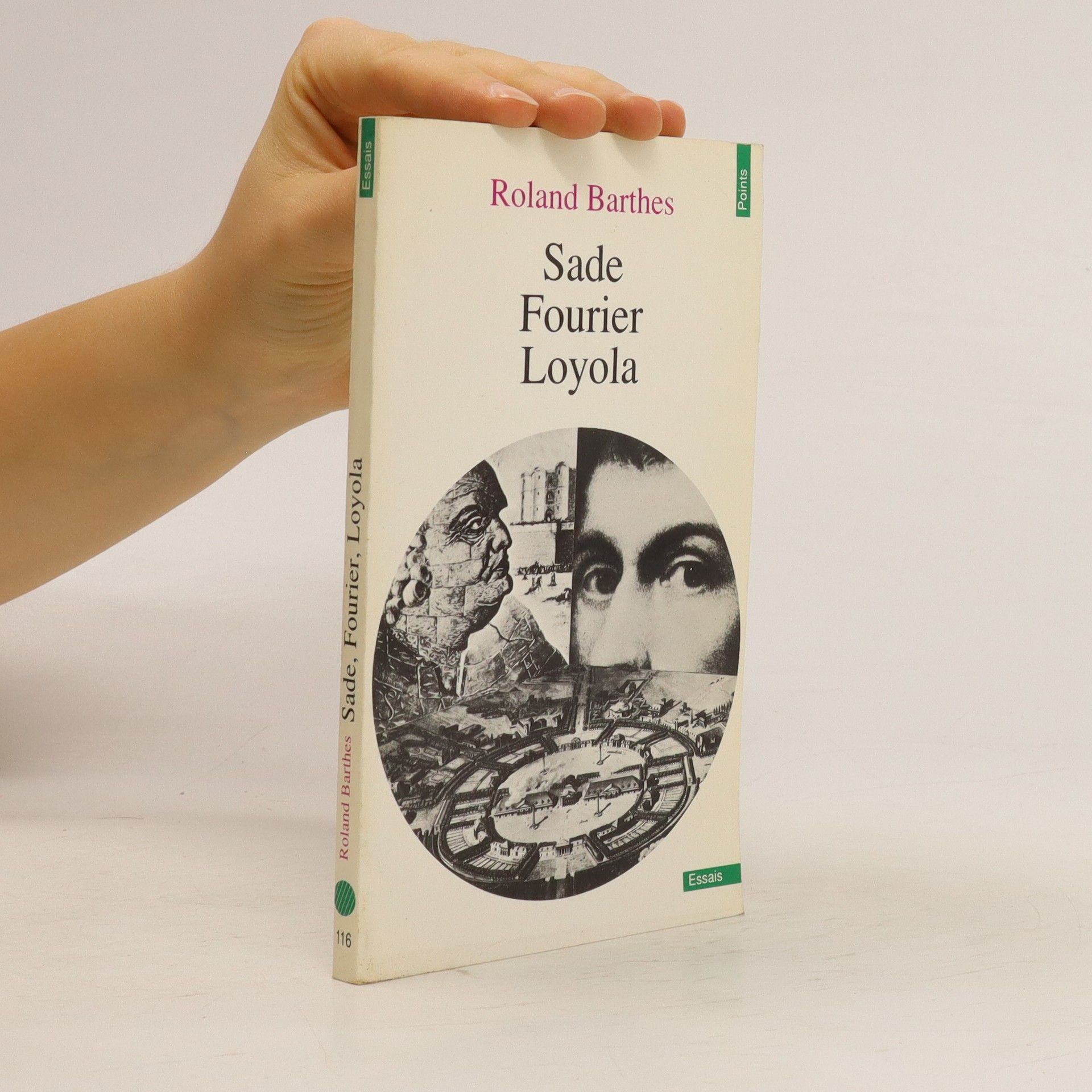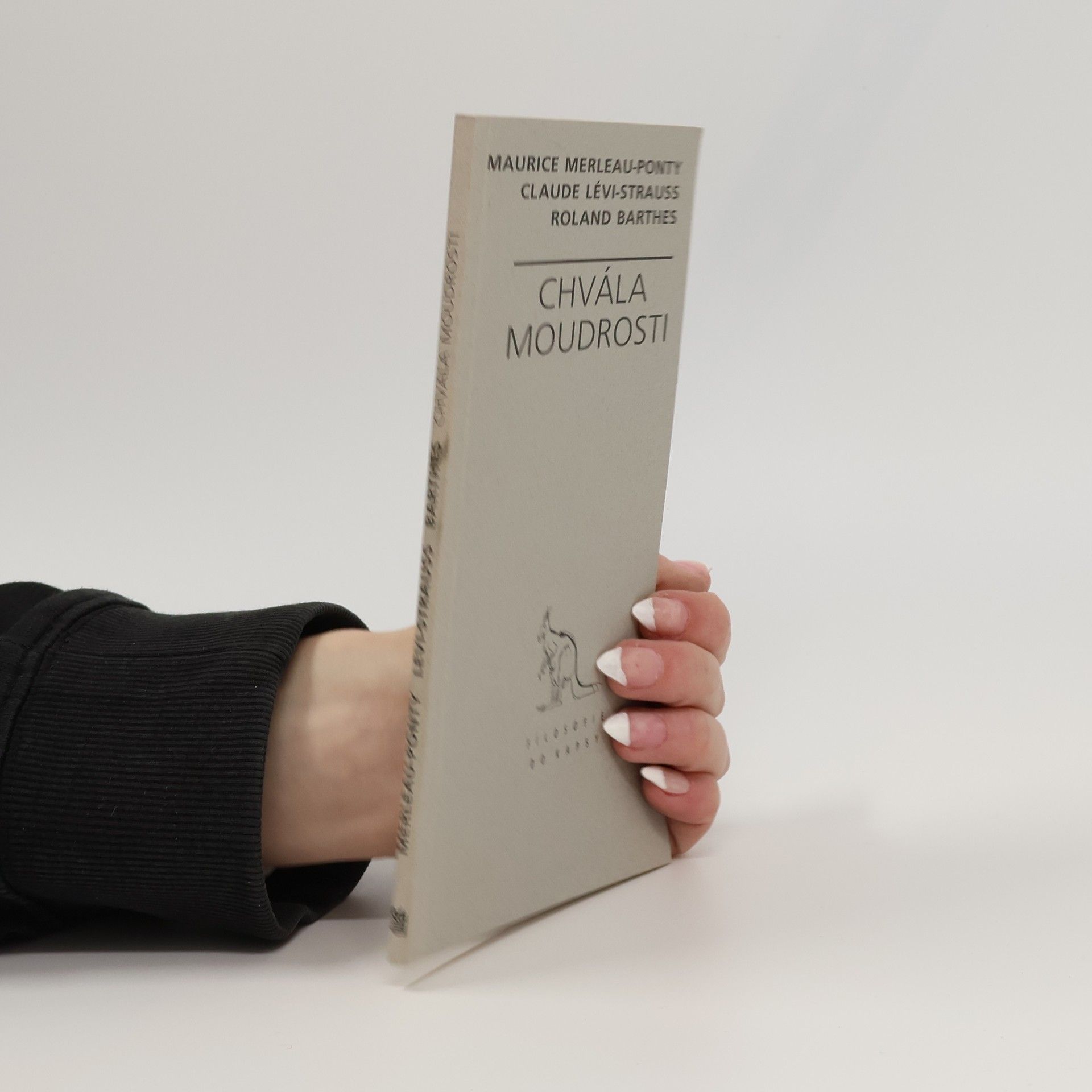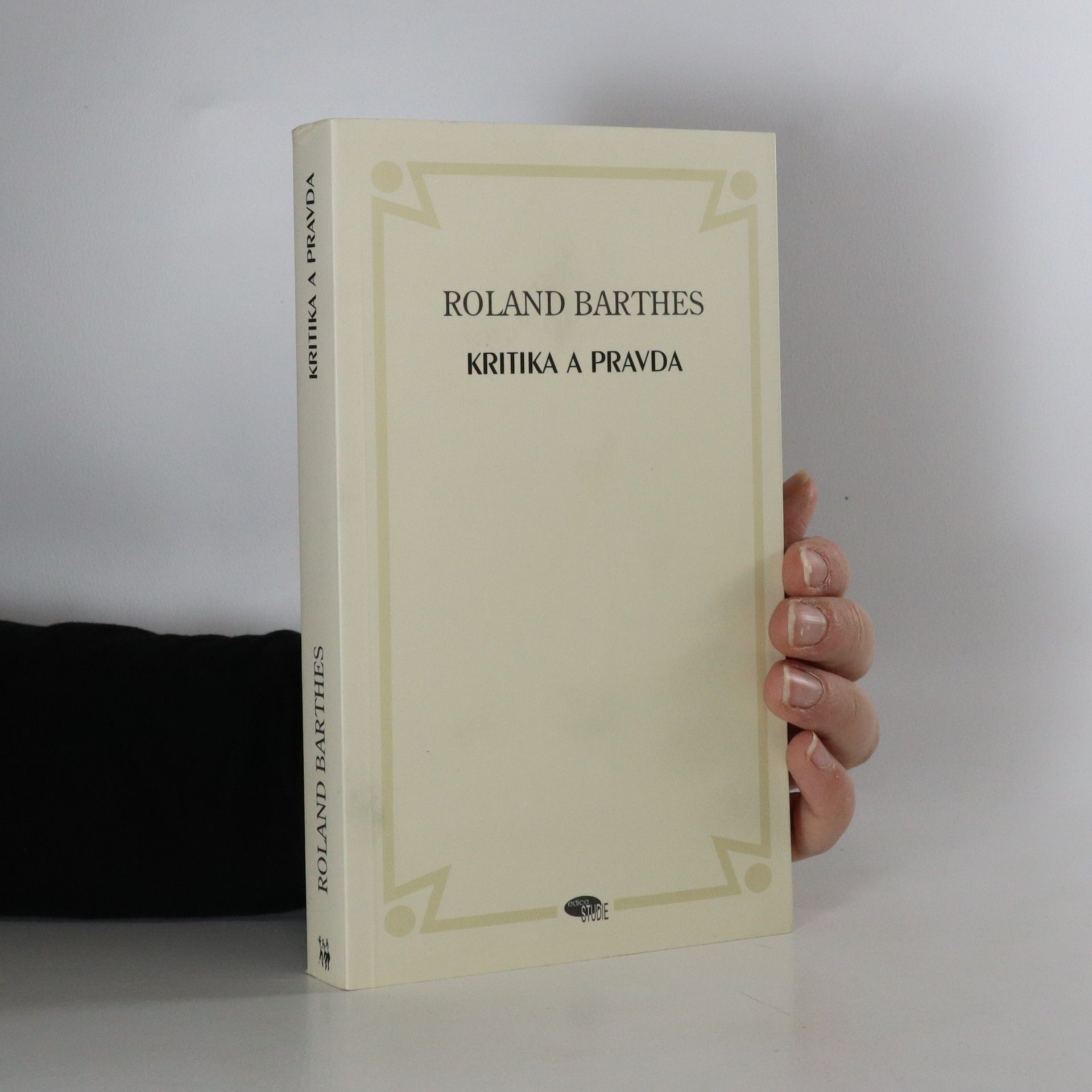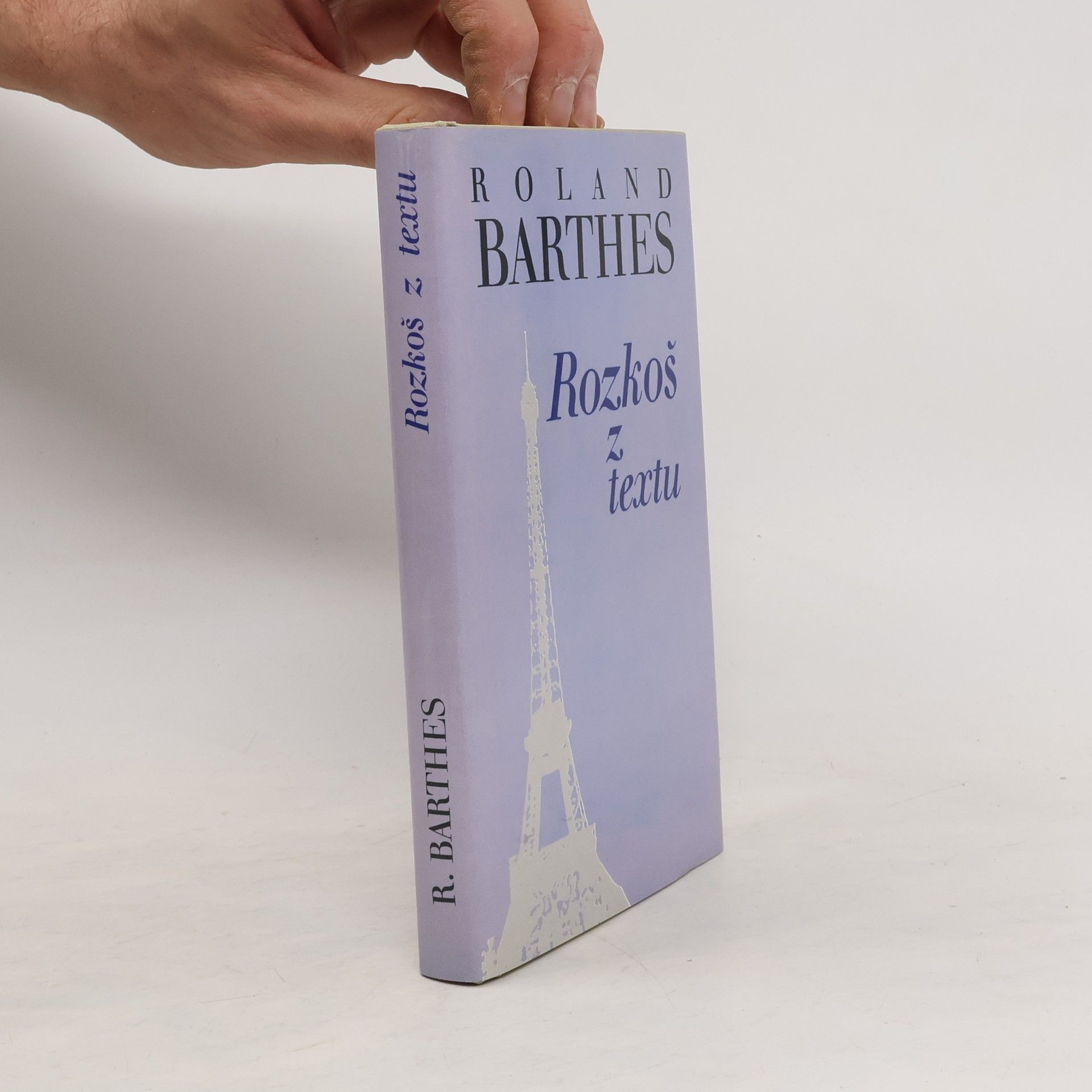Rozkoš z textu
- 186 stránok
- 7 hodin čítania
Kniha predstavuje výber z Barthesovych textov: Nultý stupeň písania (1953); Eiffelova veža (1964); Kritika a pravda (1966); Potešenie z textu (1973); Prednáška (1977).
Roland Barthes bol francúzsky literárny teoretik, ktorý skúmal rôznorodé oblasti a ovplyvnil vývoj teoretických škôl vrátane štrukturalizmu, sémiotiky, sociálnej teórie a postštrukturalizmu. Jeho myšlienky sa dotýkali širokého spektra tém a jeho prístup k analýze textov a kultúry formoval modernú literárnu kritiku. Barthesův vplyv je badateľný v rôznych disciplínach a jeho dielo naďalej inšpiruje bádateľov aj čitateľov svojim inovatívnym pohľadom na jazyk a význam.







Kniha predstavuje výber z Barthesovych textov: Nultý stupeň písania (1953); Eiffelova veža (1964); Kritika a pravda (1966); Potešenie z textu (1973); Prednáška (1977).
'May be the most detailed, painstaking anatomy of desire that we are ever likely to see or need again... An ecstatic celebration of love and language' Washington Post The language we use when we are in love is not a language we speak. It is a language addressed to ourselves and to our imaginary beloved. It is a language of solitude, of mythology, of what Barthes calls an 'image repertoire'. Reviving the notion of the amorous subject beyond psychological or clinical enterprises, Barthes' A Lover's Discourse is a book for everyone who has ever been in love, or indeed, thought themselves to be immune to its power.
Souborné vydání základních prací filozofa, filologa a lingvisty zasvěcených strukturální analýze literárního díla: Nulový stupeň rukopisu (1953) — Základy sémiologie (1965) — Kritika a pravda (1966).
A major discovery: The lost diary of a great mind—and an intimate, deeply moving study of grief The day after his mother's death in October 1977, the influential philosopher Roland Barthes began a diary of mourning. Taking notes on index cards as was his habit, he reflected on a new solitude, on the ebb and flow of sadness, and on modern society's dismissal of grief. These 330 cards, published here for the first time, prove a skeleton key to the themes he tackled throughout his work. Behind the unflagging mind, "the most consistently intelligent, important, and useful literary critic to have emerged anywhere" (Susan Sontag), lay a deeply sensitive man who cherished his mother with a devotion unknown even to his closest friends.
Přednášky tří významných filozofů - Maurice Merleau-Ponty, Claude Lévi-Strauss, Roland Barthes, na téma sociální antropologie, semiologie a filozofie bytí.
« Sade, Fourier et Ignace de Loyola ont été des classificateurs, des fondateurs de langues : langue du plaisir érotique, langue du bonheur social, langue de l’interpellation divine, chacun a mis dans la construction de cette langue seconde toute l’énergie d’une passion. […] L’objet de ce livre n’est pas de revenir sur les propositions de contenu dont on crédite ordinairement nos trois auteurs, à savoir une philosophie du Mal, un Socialisme utopique, une mystique de l’obéissance, mais de tenir Sade, Fourier et Loyola pour des formulateurs, des inventeurs d’écriture, des opérateurs de texte. Je crois ainsi poursuivre un projet ancien, dont l’intention théorique pourra se lire à travers ces études concrètes et spéciales : jusqu’où peut-on aller d’un texte en ne parlant que de son écriture ? » Roland Barthes (1915-1980) Il a publié toute son œuvre au Seuil, de Mythologiesà La Chambre claire en passant par Fragments d’un discours amoureux.
Examining the themes of presence and absence, the relationship between photography and theatre, history and death, these 'reflections on photography' begin as an investigation into the nature of photographs. Then, as Barthes contemplates a photograph of his mother as a child, the book becomes an exposition of his own mind.
This anthology by Roland Barthes is a reflection on his travels to Japan in the 1960s. In twenty-six short chapters he writes about his encounters with symbols of Japanese culture as diverse as pachinko, train stations, chopsticks, food, physiognomy, poetry, and gift-wrapping. He muses elegantly on, and with affection for, a system "altogether detached from our own." For Barthes, the sign here does not signify, and so offers liberation from the West's endless creation of meaning. Tokyo, like all major cities, has a center--the Imperial Palace--but in this case it is empty, "both forbidden and indifferent ... inhabited by an emperor whom no one ever sees." This emptiness of the sign is pursued throughout the book, and offers a stimulating alternative line of thought about the ways in which cultures are structured.
The only autobiography by the great Roland Barthes, philosopher, literary theorist and semiotician. This is the autobiography of one of the greatest minds of the twentieth century.
"[ Mythologies ] illustrates the beautiful generosity of Barthes's progressive interest in the meaning (his word is signification) of practically everything around him, not only the books and paintings of high art, but also the slogans, trivia, toys, food, and popular rituals (cruises, striptease, eating, wrestling matches) of contemporary life . . . For Barthes, words and objects have in common the organized capacity to say something; at the same time, since they are signs, words and objects have the bad faith always to appear natural to their consumer, as if what they say is eternal, true, necessary, instead of arbitrary, made, contingent. Mythologies finds Barthes revealing the fashioned systems of ideas that make it possible, for example, for 'Einstein's brain' to stand for, be the myth of, 'a genius so lacking in magic that one speaks about his thought as a functional labor analogous to the mechanical making of sausages.' Each of the little essays in this book wrenches a definition out of a common but constructed object, making the object speak its hidden, but ever-so-present, reservoir of manufactured sense."--Edward W. Said